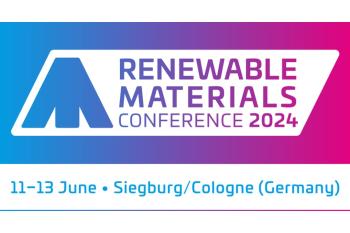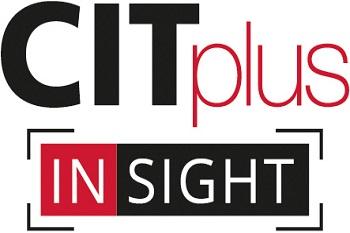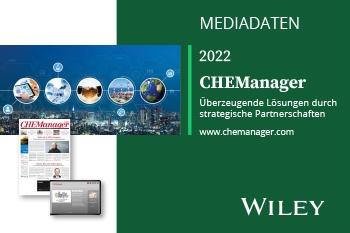Expert Interview: Matthew Moorcroft, Lonza
The Coronavirus Crisis: Challenges and Opportunities for CMOs, CDMOs and CROs
The ongoing pandemic is putting pharmaceutical R&D strategies to the test and also challenging manufacturing planning and supply chain management. Particularly in this industry segment, the supply chain is global, complex and interconnected. Each link must be strong enough to ensure that the road from lab to final drug product is as smooth as possible, even under the most difficult circumstances.
In addition to the pandemic, the growing threat of a no-deal-Brexit amid old and new trade conflicts and increasing protectionism, is putting even more stress on companies operating in the pharma sector.
In cooperation with Wombat Capital, a cross-border investment bank, CHEManager asked executives and experts of CMOs, CDMOs and CROs operating in the pharmaceutical sector to share their opinion on current challenges for their industry and how these challenges may influence changes in their market.
What in your opinion and from your perspective are the main impacts of the coronavirus pandemic on the drug supply chains?
Matthew Moorcroft: I think in contrast to other industries, the pharmaceutical and CDMO industry has fared well overall during the turbulence of the coronavirus pandemic. The notion of healthcare and medicine has been once again thrust in the spotlight. As we can see, pharmaceutical companies have responded in droves to throw the kitchen sink at the problem – with over 500+ drugs now being tested in clinical trials. The industry has responded with herculean efforts to keep employees safe and keep manufacturing plants open and concerns over drug manufacturing and supply have fortunately not materialized to the extent people were forecasting. Pharmaceutical companies have likewise turned to their CDMO partners to help balance the load and support the explosion of Covid-19 vaccines and treatments in their pipelines and, in turn, CDMOs have done their part to respond. Lonza is an example of a CDMO that has received over a hundred enquiries and we are focusing on a number of projects for customers developing therapies and vaccines
Many Western CDMOs have already shifted operations back to the USA and Europe as intensive business activity in China has driven up labor costs. In addition, national policies, trade-related developments such as Brexit and the US-China dispute, and impacts of pandemics are likely to require repatriation of at least part of the supply chain in many countries. Could CMOs/CDMOs be beneficiaries of restructured supply chains?
M. Moorcroft: Reshoring and repatriation of outsourcing activity to the US and Europe is not a new concept and over the last decade CDMOs with western assets have long been net beneficiaries to capture the changing buying behavior of pharmaceutical customers. CDMOs with a proven track record of quality systems and manufacturing excellence have been in the best position to capture the bulk of these trends. The recent pandemic illustrates the need for derisked supply chains that include assets across different geographies working to the highest global standards.
What do you think the impact of the repatriation of the drug supply chain will have on the M&A activity in the CMO/CDMO industry? Do you think that this would create an impact on valuations?
M. Moorcroft: It is fair to say that supply chains won’t be transformed overnight and relocating projects can take many months, even years, so there will be a slow and gradual cadence to any change. As more drug substance and drug product business repatriates to the west, there will naturally be more opportunities for US and European CDMOs to fill existing and new capacity. Small molecule CDMOs with idle capacity will be able to take an opportunity to fill empty slots and update their order books, and biologics manufacturers will be in a strong position to prioritize projects to maximize their product mix. Repatriation opportunities will need to be balanced against the influx of new molecules being tested in Covid-19 therapies so capacity planning will become a finely balanced affair.
EU regulatory authorities and the FDA have issued guidance on conducting clinical trials during the Covid-19 outbreak. Have you as a CMO/CDMO been affected by these changes?
M. Moorcroft: It is widely reported that business has continued for many CDMOs despite the headwinds of being able to hold face-to-face customer meetings, host site visits or attend the hundreds of cancelled trade shows, which would have taken place in the absence of travel restrictions. Some pharmaceutical clients across the industry have reported project delays due to clinical progress whilst equal numbers of others have been keen to put pen to paper on long-negotiated manufacturing slots with preferred suppliers to ensure supply chains are not impacted. In light of challenging in person opportunities, most CDMOs will have had the foresight to turn to the variety of digital means to continue business development activities with use of virtual meeting software or the use of virtual tours to give site introductions.
The race is on to develop treatments and vaccines against Covid-19, and so is the need to assure supply of these potential drugs and vaccines. Pharma companies are leveraging their internal manufacturing networks but also partnering with CMOs/CDMOs. What supply and manufacturing strategies/alliances are in play?
M. Moorcroft: Pharmaceutical companies will have an existing network of CDMOs and many will already have a preferred supplier list and will be strategically placing projects with those they know have the capacity and technical capability to deliver within the tight timelines required. Others will use this as a remit to tender projects to CDMOs which are outside their network as a means to alleviate capacity issues – either internally or with existing suppliers.
The CMO/CDMO industry has managed to support efforts to develop vaccines and therapeutics for Covid-19 despite already being at a high level of utilization. What made that possible?
M. Moorcroft: More than ever before we are seeing diversification in the modalities under investigation for vaccines and therapies. For example, two of the six vaccine candidates in phase 3 trials are mRNA vaccines. Although there are clearly challenges in scaling new technology like mRNA, the footprint required is considerably smaller than more traditional vaccines. The flexibility offered by a CDMO is key at this time and is something we have been working to develop at Lonza. In 2018 we invested in Ibex Solutions at our site in Visp, Switzerland. These are pre-built manufacturing shells that can be fitted out rapidly with different technologies and scales and hooked up to existing services. This cuts the time needed for new asset builds and is vital when companies need to make decisions on their manufacturing capacity even at very early stages. As we’ve seen during the pandemic, the timelines for trials are moving at an unprecedented speed and bringing on new capacity needs to keep pace. For example, we are currently building three production lines for Moderna as part of Ibex Solutions in Visp, Switzerland and we expect to start operations before the end of 2020.
“Emerging”, “virtual” and other small (bio)pharmaceutical companies are driving the discovery and development of new drugs but are mostly dependent on the availability of financing – which could become more restricted due to the economic downturn cause by the economic and epidemiologic disruptions to the global economy. As emerging biopharma companies are important customers of CMOs/CDMOs, how is this going to affect your business?
M. Moorcroft: Despite the downturn in many industries, most indicators point to a strong funding environment for small and emerging pharmaceutical companies during H1. Investor money has migrated towards the pharmaceutical industry that could offer new drugs to combat the pandemic and there has been an uptick in 2020 funding activity compared to last year – with some financial institutions being more bullish and reporting financing levels at all-time highs. This funding environment is made more remarkable given it comes on the back of a period of which has seen strongest levels of investor confidence in recent years.
For the biopharma CMO/CDMO industry, the pandemic crisis has created great opportunities. What is your opinion on whether and to what degree the CDMO industry will enjoy long-term benefits from its role in tackling the current crisis?
M. Moorcroft: The pharmaceutical industry as a whole has experienced unprecedented levels of media attention and public interest since the start of 2020 as governments and healthcare institutions demand new medicines and therapies to help fight the effects and the spread of the Covid-19 virus. Many pharmaceutical companies have expanded the number of drugs in their pipelines as well as forming new alliances with suppliers in order to meet the overwhelming demand from patients for novel, effective and safe therapies. Whilst the pharmaceutical industry has its own captive manufacturing, much of this unforecasted demand is actually turning to CDMOs who are being tasked to supply clinical material and launch-ready volumes to meet the aggressive timelines and demands. Many of these relationships with be existing through strategic supplier networks or established supplier lists, but some will be opportunities for pharmaceutical companies to explore new CDMO partners. For contract manufacturers as a whole, the industry will see this as yet another opportunity to demonstrate their ability to work on complex projects in tight timelines – building continued awareness for not only the biggest brands in the CDMO industry but an equal opportunity for emerging and niche suppliers as the rising tide lifts all boats.
This interview was conducted in cooperation with Wombat Capital, a cross-border investment bank providing mergers and acquisitions and strategic advisory services. With offices in New York and Paris, Wombat Capital focuses on the CDMO/CRO and pharma outsourcing sectors.












